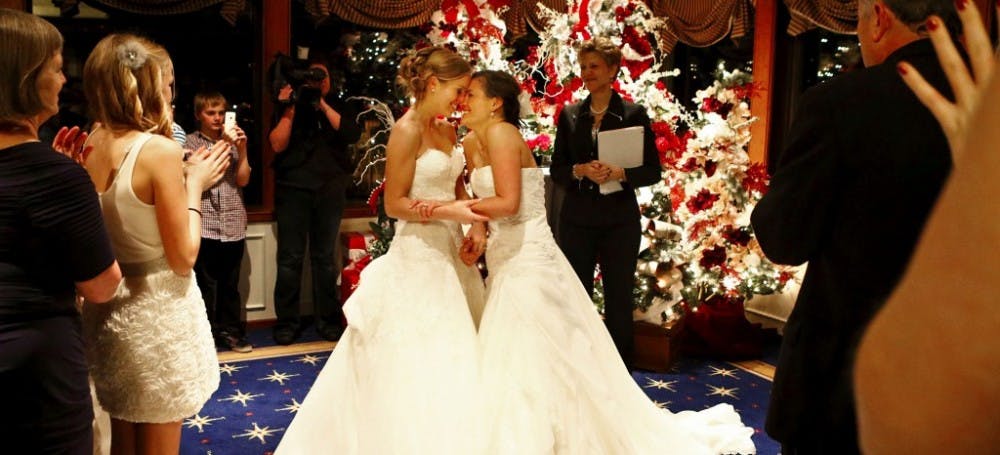On Feb. 5, Britain’s House of Commons made headway on a contentious debate in America: gay marriage. The members of this house of Parliament voted 400-175 in favor of legalizing gay marriage. “The bill now goes to committee and then to the House of Lords,” Los Angeles Times reporter Henry Chu wrote. “But its approval in the House of Commons makes it highly likely that it will eventually become law.”
I wish I could say this legislation would push the United States government to act, but I have trouble believing our government will take a cue from the U.K., regardless of whether their approach is successful. The United States has to make its own decision on this issue. Although our country is similar to the U.K., there’s a reason we are separate entities. We have different views on many subjects. If we were the same, what would be the point of being independent nations?
Anyone who has spent time in Britain can tell you the U.K., as well as other Western Europan countries, is more progressive than the United States, as evidenced by its flat fee of £9,000 per year for university students, its lack of firearms in regular police forces and its nationalized health care system. The fact that this legislation is being furthered in the U.K. comes as no surprise to me because of the country’s generally liberal outlook. But what would pleasantly surprise me is if the American government followed suit.
A Los Angeles Times editorial on this topic brings up a strong point as to why I believe it will be a while before gay marriage becomes federal law in the United States: “One obvious difference is that this country is a union of 50 ‘sovereign’ and diverse states and that laws defining marriage are traditionally enacted at the state level.”
Certain parts of the country are far less keen on gay marriage. While I think it is wrong that marriags between two people who love each other is recognized by some states and not by others, I understand different groups in different states will have opinions other than my own. It is obvious that because marriage is a state issue and not a federal one, it will be a long while before every state votes to allow gay marriage
More states are getting closer to accepting gay marriage, like my home state Illinois approving a bill to legalize gay marriage just last week. If it is approved by the House and Gov. Pat Quinn, it will be the 10th state to legalize gay marriage.
I believe, at the very least, the U.K.’s actions will give hope to those who support gay marriage. I hope the U.S. government will use the U.K.’s passage of this law as an opportunity to observe how the public receives this new legislation. Even though the United States is progressing in terms of legislation regarding this issue, the government has a long way to go. Perhaps now that there is an example for the United States to follow, legislators can work to craft a more accepting country, similar to that of the nation from which we came.


